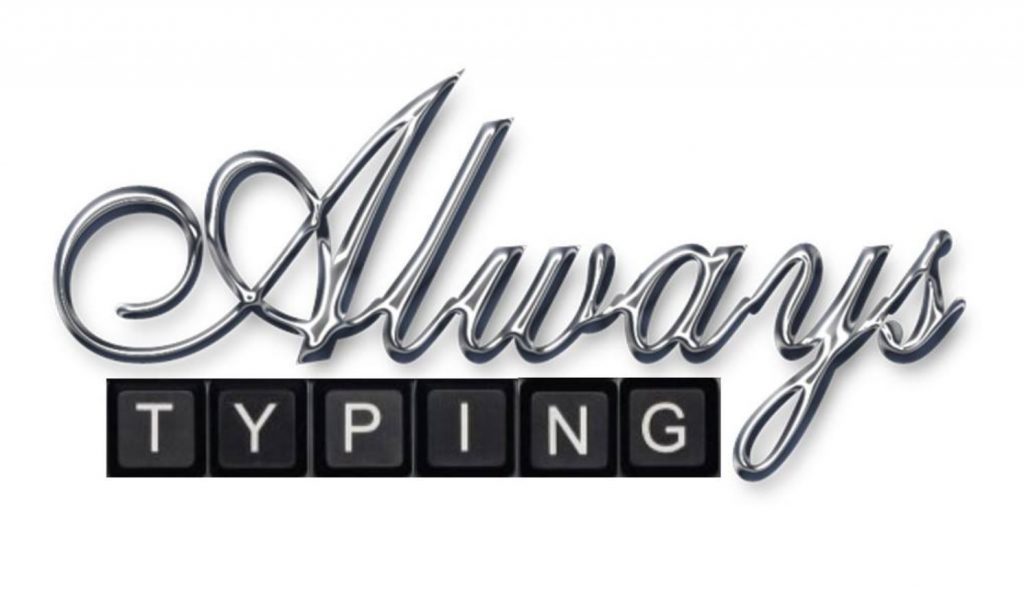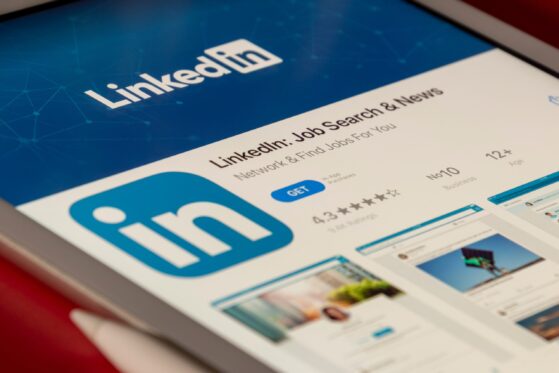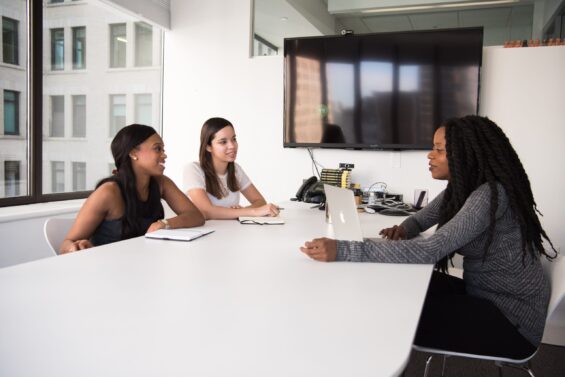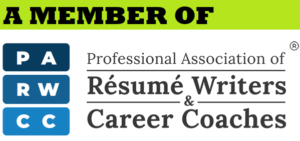More than 57 million businesses have LinkedIn profiles. This means, the hiring managers and recruiters from 57 million businesses have profiles and could potentially find yours. That is if you have one. Clients ask us every single day, “Do I need a LinkedIn profile?” The answer is yes, yes you do. You need one now. If you want to use LinkedIn to find jobs or if you want the 90% of recruiters and hiring managers who source candidates using LinkedIn to find you, this article is for you! Why Do I Need a LinkedIn Profile? Millions of people are using LinkedIn to find a job and just as many people are using LinkedIn to network, showcase their expertise, and build solid relationships that will make an impact later in their careers. Out of the site’s 885 million users, more than 310 million of them are active each month. LinkedIn is a highly popular and active social media site. Professionals across all industries find value in having a profile, whether they’re looking for a job or are happy where they are. The potential of LinkedIn is immeasurable when you really think about it. It only takes a few minutes to create a profile and a few more to fill it out, so why wouldn’t you want one? Advantages of Having a Profile When Job Searching on LinkedIn So, what are the benefits of having a profile? We mentioned a few above but we’ll go into more detail here. Read more: It’s More Personal One advantage of having a profile during your LinkedIn job search is that you can be more personable on the profile. When writing a resume, there are very strict industry guidelines that must be followed. These rules leave little room for imagination or personality. However, you can let your personality shine on LinkedIn. In the summary (a/k/a About section), you can discuss the “why” behind what you do. You can even show off the causes most important to you in the affiliations and organizations section. There are also many opportunities to brag about awards, honors, or publications that your resume may not have room for. Search Optimization You likely have heard about applicant tracking systems and the importance of optimizing your resume. But did you know it’s just as crucial you optimize your LinkedIn profile? The entire site works a lot like Google, so recruiters and hiring managers can find you easily with a few keywords. We’ll talk about ranking in recruiter searches in a little bit. Networking Having a strong network is an invaluable asset to have in your career. LinkedIn allows you to connect with previous colleagues or schoolmates that could help you get a sweet deal today. You never know when your network could come in handy, so you must always work on it. Other benefits of networking include: Networking may seem scary at first, but it gets easier as you go. Having a great LinkedIn profile makes it go much more smoothly. You Can Showcase Industry Expertise When someone visits your LinkedIn profile, they can quickly and easily see what you are an expert in. There are very few industries where this is not an advantage. You can easily position yourself as an expert or thought leader, making your job search much easier in the long run. In fact, you may catch the eye of some recruiters and speed up the process quite a bit. Research Potential Employers and Hiring Managers After you use LinkedIn to apply for jobs and win a coveted interview, you can use LinkedIn to research the company and the people. This is especially important when you want to try to find out more about the person who will be interviewing you. How Recruiters and Hiring Managers Use LinkedIn Not surprisingly, recruiters and hiring managers both leverage LinkedIn a little differently. For one, hiring managers – you know, the people who will be interviewing you – will look at your profile to get an idea of whether you fit within the culture of their company. Recruiters use LinkedIn to find you. Recruiters That’s right. You’re looking for a job and recruiters are searching for people like you to fill those jobs. In fact, they pay for this privilege. When you develop and optimize your LinkedIn profile, you make it easier for recruiters to find you. Your summary is a great opportunity to showcase your expertise and give the reader something memorable that makes you stand out among your competitors. Remember to use as many relevant keywords as you can, but use them in a way that makes sense. You don’t want to be accused of keyword stuffing. LinkedIn will rank you in recruiter searches based on keyword density, among other things. Most companies expect you to have a LinkedIn profile and some even demand it. Go ahead and create an impactful profile so that you don’t have to throw something together at the last minute. Hiring Managers Hiring managers use social media, especially LinkedIn, to learn more about candidates. When applying for a professional role, a lack of a LinkedIn profile could be what prevents you from moving forward. Hiring managers look at LinkedIn to understand your career path and industry expertise. It is an excellent way to showcase your accomplishments so hiring managers can’t wait to meet you. You can also set yourself apart from other candidates by posting relevant content within industry-specific groups. It’ll help potential bosses think of you as an expert. Prepare Your Career Documents Before Applying to LinkedIn Jobs Now you get why we say, “Yes” when someone asks, “Do I need a LinkedIn profile?” We’ll go as far as to say it is just as important as your resume. This is especially true for job seekers applying to LinkedIn jobs. Before starting your LinkedIn job search, you must ensure your documents and profile are as professional and up-to-date as possible! Contact Us Today
Wondering What Questions to Ask at the End of an Interview? Read This Article!
Did you know that not asking questions at the end of an interview says a lot about you as a candidate? Most notably, telling the hiring manager that you have no questions for them indicates that you are not interested in the position. There are many good questions to ask at the end of an interview to let the employer know you are interested in the job. It’s also important to remember that an interview isn’t supposed to be a question and answer session. It should be an equal exchange of information. The information you walk away with will be lacking if you don’t ask questions. Stop wondering what questions to ask. Keep reading to build your end-of-interview-question arsenal. Good Questions to Ask at the End of an Interview: It’s always a good idea to avoid salary or compensation questions until the company brings that up. And you should always stray away from awkward or overly personal questions. Below, we’ll outline some of the best end-of-interview questions for you to choose from: #1 What Is the Most Important Quality the Person You Hire Will Have? This question lets you know what the employer finds the most important. Most of the time, you’ve already discussed this during the interview, so you can work it in two different ways. If discussed, say, “Since we discussed X, Y, and Z as important qualities, which of those would say is the number one quality for the new hire to have?” If you haven’t discussed, say, “What is the most important quality the new hire will have for this role?” This also allows them to get more information about the type of person they are looking for. #2 What Do You Consider to Be the Most Important Question You Asked During the Last Hour? People get very nervous during job interviews and sometimes mess up when answering. By asking this question, you not only understand the top qualities the company wants but also give yourself an opportunity to expand on a previously lackluster response. #3 What Are the Biggest Challenges Your Company Is Facing? This is one of the best questions to ask at the end of the interview! First, you find out about potential challenges you’re walking into if you are hired. And second, you get to discuss how your strengths can help them overcome the challenge. It’s a win-win for both you and the employer. #4 What Will Be the Most Challenging Aspect of This Role? This question gives you insight into information that is vital to making a good decision about taking the role. You’ll learn a bit about the leadership style and culture, while also discovering whether you think you’ll fit the position well enough to overcome these challenges. Also, some interviewers may say negative things about existing leaders, team members, or candidates when answering this question. That is a major red flag that will show you the type of culture you’d be joining. #5 Can You Tell Me About the Direct Manager for This Role? Another one of the best questions to ask an employer is about who your manager will be if hired. First, you can go home and research them online to learn more about them. And second, you can get a review from an internal team member about the type of leader you’ll work under. You may also be able to segue this question into an opportunity to meet the person. #6 What Is the Team Like? Fitting in with the team you’ll be joining is kind of a big deal. Asking the interviewer this question allows them to see that you know it is a big deal and want to fit in if hired. This will leave a good impression on the interviewer. Once they have responded, be sure to show excitement about what you learned and explain how you think you’d be a great fit. #7 What Is the Company’s Culture Like? This one is much in alignment with the previous question. A company’s culture can make or break a team. You want to know what type of environment you’ll be walking into. For example, if they say it’s a fast-paced, high-pressure environment, you know that there will be high expectations. You can then decide if that is something you truly want to join. #8 Are There Formal Performance Evaluations? How Is It Measured? Everyone wants to know how they will be evaluated on the job. By asking how performance is measured and how often, you’ll get a good idea about how you can expect to receive future promotions or salary increases. The answer to this question also gives you insight into performance standards in the company. #9 Why Are You Hiring for This Position? Likely, if the company can’t keep someone in the role, you’ll want to know ahead of time. Asking why the position is open will give you the information needed. Some positions are brand new and that’s why they are hiring. Others are because the role is probably too difficult with low pay and they can’t keep a worker. The answer will give you an idea of which it is. #10 Where Do You See the Person You Hire for This Role in 6 Months or 1 Year One of the most common interview questions they’ll ask you is where you see yourself in 5 years. After you answer that questions, use this question to put it back to them. You’ll learn whether the are opportunities for advancement. You can also find out whether they’ll let you perform stretch assignments (i.e., tasks outside of your normal job) to enhance your skills and possibly advance to a new position later. PRO TIP: Don’t forget to send a follow-up after your interview. Click here to learn how! Update Your Resume to Secure Your Next Interview Now you have a list of good questions to ask at the end of an interview. Before you’re ready to jump into interviewing, you need to
6 Most Common Interview Questions and How to Answer Them
The average interview is 45 minutes long. During that time, potential employers may ask you a variety of questions to determine your skill level, drive, and personality. There are a variety of common interview questions that hiring managers ask. In this article, we’ll outline 6 of the most common and offer advice on how to answer them. #1 Tell Me About Yourself This is arguably one of the most popular interview questions asked by potential employers. And what a loaded question it is! How exactly do you answer this? You should consider the following when you create your elevator pitch: For example, your elevator pitch could look like this: “For the last 10 years, I have been in the sales industry with a focus on IT solution selling. Throughout my time in the industry, I have discovered a passion for SaaS products and gained subject matter expertise in these areas. I also serve as a mentor to junior associates to help them improve their selling capabilities. I hope to progress through my carer into a sales leadership role.” #2 Why Are You Leaving Your Current Role? This is often a tricky question and it’s very important you never, under any circumstances, speak negatively about a previous company. It doesn’t matter if they set your house on fire, you do not speak poorly about a previous employer. Interested in learning about other interview mistakes to avoid? Check out our article on this topic! Instead, you can say something like this: “I actually wasn’t looking to advance my career just yet, but once I saw the opportunity (or was contacted by someone), I knew I couldn’t pass it up. This job aligns with my career goals and personal strengths. I hope to learn more about it during this conversation.” #3 What Is Your Desired Compensation? Before going into an interview, you need to research the average salary for your area. You can use this calculator to get an idea of what to expect. It’s important you remain open to negotiations during this discussion. Also remember that compensation isn’t just about dollars and cents. Your answer could be similar to this: “Based on my research, this job role has a salary between $XX and $XX. However, I understand that salary is based on many factors and the monetary number is negotiable. I believe we can come to a mutual agreement for a salary that will reflect my years of experience, education, credentials, and strengths.” Before ending your response, put the question back to them by adding this, “Does the company have a range or set salary schedule for this role?” #4 Why Should We Hire You? This is another of the most commonly asked interview questions. During your answer, you want to highlight how your personal and professional goals align with the company’s mission and vision. It’s also important that you comment on a few of the core job duties and your experience with them. Here is an example: “Based on the job description, I have the unique combination of education, skills, and experience that your company desires. After researching your company, I believe my personal beliefs and your mission are in perfect alignment. My past experience as a (job title you’re applying for) has prepared me well for the challenges I may face in this role. I have extensive experience in (list a few skills from the job description). After discussing the role with you, I am even more interested in the position and hope we can move to the next steps.” If you want to be a little more bold, at the end, you can say, “After discussing the role with you, I am even more interested in the position and look forward to moving on to the next steps in the interview process.” #5 What Are Your Strengths? What Are Your Weaknesses? Two of the most asked interview questions are about your strengths and weaknesses. When discussing your strengths, you want to highlight the skills you can do without issue or assistance every single time you’re asked. For example, if you are in the human resources industry and are exceptionally good at benefits administration, you could talk about that. An example response could be the following: “As an HR generalist, I was first introduced to benefits administration three years ago. While I struggled at first, I quickly adopted the skills needed to masterfully complete (specific job description skills). I am now confident that this is one of my best strengths.” As for weaknesses, you want to approach them a little differently. You want to talk about a weakness that doesn’t directly hurt the job you are applying for. It should also be a skill you are actively working on improving. Avoid trying to use a strength as a weakness (e.g., “I’m a perfectionist”) or faking an answer. For example: “I believe my greatest weakness is handling conflict in the workplace. This is a common issue that arises in the HR department and I am actively working on improving my dispute resolution skills with (a course, class, or book). This is something I work on every day to resolve issues without coming across negatively or aggressively. In the last six months, I’ve been able to resolve conflicts with ease and know I can bring that skill to my position here at ABC Company.” #6 Where Do You See Yourself in 5 Years? This is one of the most typical job interview questions recruiters ask. For some people, this question is very difficult to understand. Many people can’t even see where they’ll be the next day, much less five years from now. It’s best to approach this question by referring to your past. For example, you could say, “Five years ago, I didn’t expect to be sitting here having an interview for this HR Generalist position. I’ve grown much faster in my career than I expected. With that said, I always set personal and professional goals that will propel my career
Were You Terminated? Learn How to Explain Being Fired During a Job Interview
Nearly 1.4 million people have been fired or laid off in 2022. If you are one of these people, you’re probably dreading your next interview. Answering, “why did you leave your last position?” isn’t an easy question after a termination. You’re in the right place. This article will educate you on how to explain being fired without making it a huge deal or the focus of the interview. Termination is a tough situation, but with our tips you can move on to your next role soon! How to Get a Job After Being Fired Job searching after termination is a trying time for most people. Not only do you not know how to address it in interviews, but most of the time you will have low confidence due to the situation as a whole. Getting a Job After Being Fired: Do’s and Don’ts You may be wondering what to avoid doing when discussing being fired. We have a few do’s and don’ts to help you stay on track when discussing the situation. Read more below: Don’t Speak Badly About Your Previous Employer Hiring managers do not want to hear you talk badly about another company. This makes you appear bitter and gives the hiring manager a bad impression about the type of employee you are. So, when discussing the termination, stick to the facts and try to keep emotion or too much detail out of it. Do Keep Your Response Simple and Truthful Without Too Many Details You don’t want to lie to a potential employer. This could backfire big time and in a bad way if you did try to lie about a termination. It’s best to keep it simple and truthful without dwelling on it for too long. For example, let’s say you were terminated because of a common mistake in a regular process. It doesn’t matter if the manager didn’t like you and was looking for a reason to let you go. It also doesn’t matter if everyone else in the company did it that way. Those details are not important and shouldn’t be included. Your answer could go something like this: “I was terminated due to an error in a (type of) process. I have since discovered the correct way to do it and feel strongly that the error will not present an issue ever again. In fact, the new knowledge I have regarding (type of) process will help your team with (skill, skill, skill).” PRO TIP: Always end any response, especially one that begins with a negative, in a way that shows what benefit you’ll bring the new company and its team. Don’t Avoid the Question or Lie When asked why you left your previous company, it’s not a good idea to try and avoid the question or to outright lie. Not only will the hiring manager see you are uncomfortable and likely know something is up, but it’ll mean you lose out on the job for sure when they realize what you are lying about. Be straightforward and honest. It’ll show the company you can own up to mistakes (if that was the reason) or handle a challenging situation with grace. How to Quickly Redirect the Conversation to Your Strengths When explaining the reason for termination, it’s vital you let the interviewer know that you have learned from any mistakes that were made and showcase a few strengths. If you were terminated due to a layoff or company closure, those discussions are much more understandable and likely don’t require a lot of redirection. It’s still important you discuss your strengths throughout the interview. For example, if you were laid off, the answer could be: “I was recently laid off at XYZ. While the situation has been difficult, I am confident in my ability to deliver exceptional customer service and help support your company in growing new business.” If you were fired, here is another way to redirect the conversation: “There was a miscommunication about a process and I messed up. I realize now I should have asked for more help on how to do the process correctly. Now, I’m far better at active listening and have become more attuned to my own failings. Being self-aware can certainly be something I use to fulfill the (skill, skill, skill) you require for the (position title).” Job Search After Termination Doesn’t Have to Be Stressful! Now you know how to explain being fired. We hope this article helped you feel more confident going into your next interview. If you haven’t started interviewing yet, you may want to consider a resume update! With a strong resume, terminations aren’t as difficult to explain. Working with a professional resume writer helps you showcase your strengths and abilities in a way that grabs the reader’s attention and makes them want to know more. Don’t start your job search without an updated resume! Check out our packages and let’s get started today.
Tired of Saying “I Can’t Find a Job?” Discover the Most Common Reasons You’re Struggling
Did you know that 47% of interviewers will pass on candidates who know nothing about the company? Or that 65% of candidates don’t get a job because they don’t make eye contact? There are dozens of other reasons why people can’t seem to stop saying “I can’t find a job.” In this article, we cover the most common issues that pop up and prevent people from getting a first, second, or even third interview. Keep reading to learn more! #1 You Need to Improve Communication Skills Many times, when people interview, they get very overwhelmed or anxious and give long-winded answers to questions that could have been answered more succinctly. This is where practicing effective and clear communication is important. By improving this skill, you make your next interview run more smoothly and make yourself appear more confident. #2 You Aren’t Dressing to Impress While some people would argue it’s outdated to dress up for an interview, just as many people would argue it’s important to do this to make a good first impression. When in doubt, it’s better to wear something professional when interviewing. This shows the interviewer you took the time and effort to look presentable for an important meeting. #3 You Aren’t Researching Before Interviews Once you get an interview scheduled, you must research the company. You can go to the company’s website or social media pages to find out a few facts about when it was created or its mission. A great place to research companies is LinkedIn, it’s also a perfect platform for building your professional network. #4 Your Resume Needs an Update One of the most common reasons people state “I can’t get a job” is because their resume isn’t updated. In today’s world, your document must pass through the applicant tracking system (ATS) before it gets to the decision-makers. This means you have to tailor it to every job you apply for. It also means you need a professionally formatted document that can pass the screenings. Resumes with a lot of tables and integrated designs usually do not make the cut. The format should be clean with white space and clearly defined headings above each section. #5 You Aren’t Applying to Enough Jobs Applying for a new job often seems like a job. It’s a timely, but necessary, process. You must apply to many jobs to get interviews. Choosing two or three and calling it a day on the job search isn’t feasible. You should be applying to 10-15 jobs per week. #6 You Aren’t Preparing Enough During Each Stage Before the first interview, you need to research the company and practice answers to the most common interview questions. You should also think of a few questions to specifically ask the interviewer that relates to the company/culture/job. If you are going to a second interview, it’s important to think of specific examples that showcase your leadership, problem-solving, and customer service skills. Remember to demonstrate both hard and soft skills. If you are making it to the third round, you are so close! You’ll want to really prepare for this one because it often means you’re down to one to three candidates. Research the interviewer, have a game plan about your first few months in the job, and any other scenarios you may have picked up on in previous interviews. #7 You’re Overly Excited or Desperate A lot of people struggle with “I can’t find a job I like” and get overly excited when one does contact them. While it’s okay to be excited, you must contain it and remain professional during the interview(s). Candidates who seem desperate for the role are often overlooked because it’s a turnoff to interviews. Think of it like how you would approach a potential date…a desperate person isn’t as attractive as a confident one, right? #8 You Need to Work on Confidence Expanding on number seven, you may have a confidence issue. It’s easy to let the situation take hold and feel unconfident, but it’s important you don’t convey that during an interview. If you don’t feel confident, fake it until you do. The best way to gain confidence is through preparation and practice. #9 Your References Need a Check No one wants to be in this situation, but if you’ve worked on everything else and you still aren’t getting that call…your references may not be on your side. Take a look at the people you put down for references and make sure they are still solid contacts who will give you a good recommendation. It’s also a good idea to let them know ahead of time that a company may be calling them so they are prepared and know to answer the phone. Tired of Saying “I Can’t Find a Job” to Friends and Family? Resolve #4 Today Now you know a few of the main reasons why most people are constantly stating “I can’t find a job.” Many of these problems are easy fixes with a little practice, help, or dedication. If you are struggling because of number four, we are here to help! Working with a professional resume writing company can help you prepare an ATS-friendly document that wows readers. Check out our packages today and contact us to get started on improving your job search!
Avoid These Common Interview Mistakes to Land Your Next Job
Did you know that 81% of hiring managers will not hire a candidate that speaks badly of their former employer? Or that 76% will not hire candidates who are perceived as arrogant? There are tons of other reasons interviews go badly, so you must understand what not to do. This article covers the most common interview mistakes. You’ll learn which mistakes job seekers seem to make over and over again. Also, you’ll learn how to save yourself if you did have a mishap. The Most Common Interview Mistakes Job Seekers Make No one is perfect, not even the recruiter, but some interview mistakes are easily avoidable. Your success hinges on performing some due diligence, including things like performing some research and setting the proper job search goals. These are the most common interview mistakes to avoid: Some of these seem like no-brainers, but they happen every day. It’s important to avoid letting your nerves get the best of you during an interview. With preparation and practice, you can easily ace your next interview. How to Overcome the Biggest Interview Mistakes The best way to avoid several of these mistakes is to prepare properly. That means dressing in an appropriate outfit, researching the company and the interviewer, and practicing your responses. Perhaps you find that you’re running late for the interview. Be proactive about this mistake. Call the company and let them know – don’t wait until you’re there and start to make excuses. The key to overcoming interview blunders is to own your error, apologize, and find out what you can do to make up for it. Sometimes the mistakes made are very offensive to the interviewer, and there isn’t much hope of recovery. In these instances, it’s best to thank them for their time, send a quick email, and move on to other job opportunities. The most important thing is to learn from your mistake, so it doesn’t happen again! Should You Follow Up After Making Job Interview Mistakes? Absolutely! Everyone makes mistakes. Following up with the interviewer shows you are still interested in the role and that you are a professional. Not only does it put your name back in front of the hiring manager, but it also allows you to dispel any oopsies you made during the interview. Plus, emailing a quick thank-you note doesn’t take a lot of effort, so you don’t have anything to lose. Tips on How to Avoid Mistakes Following these tips will help you feel more confident in your job search and help you avoid the mishaps many people make. Research the Company The hiring manager has done their due diligence and looked through your resume and possibly your LinkedIn profile. You have to do the same. Occasionally, you can’t find the interviewer online, but you can find out information about the company. The about section on the company’s website and the social profiles it has are great resources. Looking up articles to see if the company has made the news recently is another way to learn more about any major projects they may have coming up. You don’t have to know everything about the organization, but knowing the basics is a must if you want to impress your interviewer. Review Common Interview Questions Some common interview questions are asked by almost all interviewers. You can easily find an extensive list and then practice how you answer each. For example, most interviews have these questions: Why do you want to work for us? Why do you want this position? Or why are you a great fit for this position? What are your strengths (or weaknesses)? Tell me about a time when… Tell me about yourself A question about a specific problem and how you solved it By putting in the effort now, you have answers for interviews to come, too. So, even if the one you are focusing on doesn’t work out, you are more prepared for the next. Get a Professional Outfit If you are looking for a job, you may be tight on money. There are career centers, thrift stores, and even some non-profit organizations that will help people get interview-appropriate outfits. You can do a quick Google search or ask around in your community for local resources. Obviously, you can purchase a new outfit, if you have the funds. There are two types of attire–business casual and professional. For business casual, you’ll want a nice pair of slacks and a professional-looking blouse or button shirt. Professional attire is some type of suit. Learn Interviewing Techniques You may have heard about the STAR method. It is a great technique used for both the resume and the interview. With it, you shape your answers based on the following: Situation Task Action Result This gives the interviewer a clear outline of what the problem was, what you were tasked to do, what actions you took to solve it, and what results happened from those actions. The STAR method makes your accomplishments more impactful so they stick with the hiring manager. Get Your Resume Ready for Your Search Today Now you understand common interview mistakes and what steps to take to avoid them. We hope this article helped you understand the importance of preparing for your next interview! Before you start interviewing, you must ensure your resume is interview ready. A professionally written resume lands approximately 40% more interviews than other resumes. Contact us today or check out our services to learn more.








